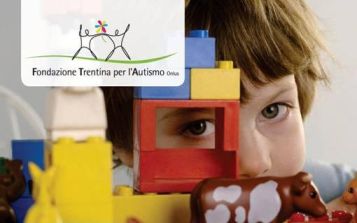Germany: New study on mental health

A new study of the German health insurance DAK shows that sick days due to mental illness are increasing.The number of days absent caused by depression or anxiety disorders was never as high as today. The report (in German language) can be found at
https://www.dak.de/dak/download/Charts_zum_DAK-Psychoreport-1718868.pdf?
Picture: Wikimedia Commonsthe "DAK Psychoreport" emphasises.
Filippines: Innovative Stress management through expressive arts
MANILA, Philippines – Can expressive arts help you take care of yourself better?

"Bounce: Living the Resilient Life," a one-day workshop on self-care, stress management, and arts for well-being will be held on November 16 in Macao.
It is organized by the MAGIS Creative Spaces, in partnership with Emmaus Center for Psycho-Spiritual Formation, Cartwheel Foundation the National Center for Mental Health, and IsraAID.
Italy: Autism and burnout
Coping with the stress of Autism
The Italian NGO Trentino Autism Foundation Onlus designed an educational project intended to empower internal and external operators dealing with disabilities, including autism spectrum disorders. The training course is structured into two training modules for a total of 9 training hours.
www.fondazionetrentinaautismo.it

Picture: Course Brochure by Trentino Autism Foundation Onlus
Germany: Control freaks live dangerously
According to the researchers of the IFS (Institute for Social Science) in Munich - Germany, perfectionists are at major risk of burnout.

Foto: Pixabay
Companies that systematically go beyond their capacities systematically also overwork their staff. The trend is to offer job flexibility but eventually the flexibility stops when it comes to performance indicators and outcomes: many staff members are not able to deliver their work within a given time frame. They end up in a vicious circle in which they desperately try to find a right balance between career-family and personal health.
Europe: The Teaching Profession in Europe: Practices, Perceptions, and Policies
 This Eurydice report analyses the relation between the policies that regulate the teaching profession in Europe, and the attitudes, practices, and perceptions of teachers. The analysis covers aspects such as initial teacher education, continuing professional development, transnational mobility, as well as teacher demographics, working conditions, and the attractiveness of the profession.
This Eurydice report analyses the relation between the policies that regulate the teaching profession in Europe, and the attitudes, practices, and perceptions of teachers. The analysis covers aspects such as initial teacher education, continuing professional development, transnational mobility, as well as teacher demographics, working conditions, and the attractiveness of the profession.
The report focuses on almost two million lower secondary education teachers employed in the 28 EU Member States, Iceland, Liechtenstein, Montenegro, the former Yugoslav Republic of Macedonia, Norway, Serbia, and Turkey. It is based on Eurydice and Eurostat/UOE data, as well as on a secondary analysis of TALIS 2013, combining qualitative and quantitative evidence. The reference year is 2013/14.







